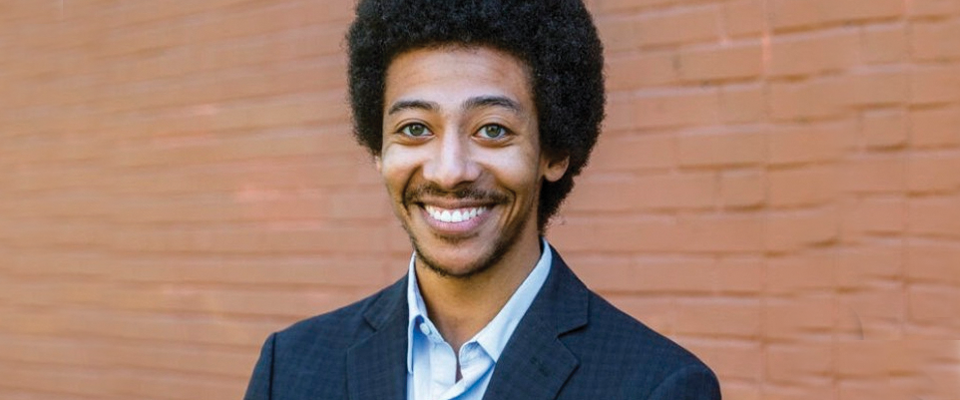The latest news from our quarterly columnist
FORGET O.J. SIMPSON. The “Trial of the Century” was the Lindbergh kidnapping case in 1935, when a German immigrant named Bruno Richard Hauptmann was sent to the electric chair for killing the infant son of Charles Lindbergh, arguably the most popular man on Earth.
“Lucky Lindy” had been the world’s darling ever since he became the first person to fly solo across the Atlantic. Time magazine created its first annual “Man of the Year” issue just to have an excuse to put him on the cover.
But now a book by a respected judicial scholar, The Lindbergh Kidnapping Suspect No. 1: The Man Who Got Away, argues that the real killer was none other than Lindbergh himself.

“The pretrial publicity had [Hauptmann] guilty from the day of his arrest,” says the author, Judge Lise Pearlman, J.D. ‘74.
“They called him Public Enemy Number One, and when he was placed in jail awaiting trial, the state decided to have 17 guards placed outside his cell, even though he posed no threat whatsoever.”
Lise made some history herself when she graduated from Yale with the school’s first cohort of women undergraduates. It was the first of many firsts, including first woman managing partner of an established California law firm and first presiding judge of the California State Bar Court.
After graduating from Berkeley Law (then known as Boalt Hall), she clerked for the chief justice of the California Supreme Court, followed by a year teaching law at Stanford and 13 years as a business litigator in Oakland. She’s been a private arbitrator and mediator since 1995 and chaired the Oakland Public Ethics Commission in 1998, as well as serving as president of Women Lawyers of Alameda County and a board member of California Women Lawyers.
Then she reinvented herself as the author of two award-winning books: The Sky’s the Limit and American Justice on Trial, both about Black Panther Party cofounder Huey Newton’s murder trial in Oakland, which everyone expected to be a slam dunk death penalty verdict but ended up a manslaughter conviction. Newton’s lawyers, Charles Garry and Fay Stender, succeeded in impaneling a diverse jury, including a Black jury foreman.
“You’re entitled to a jury of your peers, especially in death penalty cases, but for 200 years it was always white men, especially when the defendant was a minority,” says Lise, “But they did some innovative things, like working with sociologists from Cal, which was pretty much unheard of back then, and had them testify in court about implicit bias, although they didn’t call it that.”
She also wrote a biography of movement lawyer Fay Stender, Call Me Phaedra, and coproduced two films about pioneering minority women judges and a documentary about the Newton case, American Justice on Trial: People v. Newton.
Her principal researcher on the Lindbergh book was her daughter, Jamie Benvenutti. “With her help, my book put in evidence that nobody else has figured out for 88 years,” Lise said. “Nobody else had put it together as a puzzle. They got parts of it, but they never got all of it.”
So what’s the evidence against Lindbergh? Like any good lawyer, Lise doesn’t try to tell the jury—or, reader—what to think. Instead, using documents and photos from the Lindbergh archives that the jury never saw, plus forensic analysis never published before, she lays it all out and lets readers come to their own conclusion. As Henry David Thoreau observed, “Some circumstantial evidence is very strong, as when you find a trout in the milk.”
IT’S ALWAYS A PLEASURE to hear from one of my favorite publicists, Janis MacKenzie ’74, because I always know she has a story that I’m going to love. But this time she wasn’t pitching me one of her clients; it was one of her friends, Steve Mayer ’76, MBA ’87, whom she met almost 30 years ago when they were the youngest members of the San Francisco Chamber of Commerce board.
“He’s the founder of the 5 Buckets 4 Shovels Foundation, which seeks to ensure that everyone has the financial tools necessary to lead a successful life,” she said. “He’s published two books on financial literacy, 5 Buckets, 4 Shovels, a Beach, and a Map: A Guide to Financial Security, which focuses on working adults, and Adulting 101: A Guide to Personal Finance, for young adults.

“But the story goes way beyond the foundation. The real story is Steve himself and his unshakable optimism, energy, and willingness to help others.” Janis says that despite having built one of the largest accounting firms in California, he’s not your typical CPA. “Steve is a true entrepreneur who also owns Scott’s Seafood restaurants, Café de la Presse, a catering company, and Books Inc. Some of those businesses came his way because he refused to let his clients go under, and he invested his own money to bring them back to life. He is passionate about supporting independent small businesses and claims, although I cannot independently verify, that he has never purchased anything on Amazon.”
“Only one question,” I said. “Did he ever play football for Riordan High in San Francisco?”
“Why, yes,” she replied. “How did you know?”
Elementary, my dear Janis. Remember the story I wrote about Bill Blanchard ’81, who was paralyzed from the neck down during a routine tackling drill during his senior year at Riordan? Steve was standing right next to him when it happened.
Three years ago, two of Bill’s old teammates, Dan Hayes and Dave Mahoney, were visiting when Bill revealed that he was in desperate financial straits. He had an old, dilapidated mattress and a broken-down wheelchair that were giving him terrible bedsores, and the only way he could communicate with the outside world was by attaching a stick to his forehead so he could pound out one letter at a time on an old, obsolete laptop.
Afterwards, Dan and Dave said to each other, “We’ve got to do something!” But they didn’t know how. They needed help. That’s when they called Steve. “He said, ‘I think I can help you more than you know,’ ” remembers Dave. “And he was right. He’s put his whole life on hold for this.”
“I’m fortunate that with my business experience, I have a pretty good idea of how to get out of the paper bag and make stuff happen,” Steve explains. “All I had to do was walk over to a number of people who work with me and say, ‘This guy I went to high school with has been paralyzed for the last 50 years. Can you please stop what you’re doing and do this?’ ”
Steve’s chief administrative officer set up a GoFundMe that raised enough money to make Bill financially secure for the rest of his life. His assistant did all the paperwork. His marketing director helped spread the word. And his IT consultant set Bill up with a state-of-the art computer system—voice-activated, of course. They also bought him a new, custom-fitted wheelchair and a new mattress for his bed. Sadly, Bill passed away in February of 2020.
As it happened, a week after Bill was injured the coach threw Steve off the team for sassing him. Instantly, he was ripped away from his teammates, and best friends. “It was like getting a divorce and all your friends went with your ex-wife,” he says.
“Don’t you think it’s ironic,” said Dave, “that the guy who was thrown off the team ended up being the most valuable player?”
IF YOU WERE ANYWHERE NEAR the student union before the pandemic locked down the campus last spring, you might have noticed a young man doing some pretty impressive moves on roller skates.
Who would have guessed that only a year later he would become one of the newest members of the most powerful elected commission in Berkeley, the Rent Stabilization Board?

His name is Xavier Johnson, J.D. ’16, and he’s been interested in tenants’ rights almost as long as he’s been roller-skating.
“It started in high school. I was doing a lot of housing policy research for debate because I just loved arguing. And it was amazing just how inequitable it was for communities of color, for people who have low income, for women, and for LGBTQ populations. So I made it my goal to go into law and policy because I saw that the decisions our elected officials made really defined the opportunities that we have in life.”
His college years were spent at the University of Texas at San Antonio, where he was active in student government and worked at a law firm specializing in land use law.
“Basically, they were lobbyists for developers to get projects through at the city level. I did that work for a bit and realized that this was totally inconsistent with my values. So when I got to law school at Berkeley I spent my first summer internship at Tenants Together in San Francisco. And I’ve been doing a lot of tenants’ rights and housing-related issues ever since.”
After graduating from law school, he worked for two years for Congresswoman Barbara Lee, MSW ’75, then became a legal fellow at Centro Legal de la Raza in Oakland.
That’s where he struck up a friendship with Leah Simon-Weisberg, and four years ago he helped manage her successful campaign for the Berkeley Rent Stabilization Board. She ran for re-election last fall and asked him to join her five-person slate, which was competing against one backed by property owner groups.
He brought a lot to the slate beyond his experience. As a member of the African American and queer communities, he was able to reach out to both populations for support.
It was David vs. Goliath all over again. Xavier only had about $7,000 to spend on his campaign; the other side spent $130,000. And with the election taking place in the midst of a pandemic, door-to-door campaigning was severely curtailed.
When the votes were counted, the tenants’ slate had swept all five seats. Simon-Weisberg finished first with 31,924 votes, and Xavier came in a strong second with 29,995.
And what’s first on his agenda for the Rent Board?
“I want to work on allowing tenants to have sub-tenants in their apartments. Because of the pandemic, so many people have lost their income and their ability to pay rent. To me, it just seems the right thing.”
And, yes, he plans to resume roller-skating as soon as the lockdown is lifted.
Reach Martin Snapp at catman442@comcast.net.
***Correction: A previous version of this story referred to a Jamie Benson. Her name has been corrected to Jamie Benvenutti.
From the Spring 2021 issue of California.



















